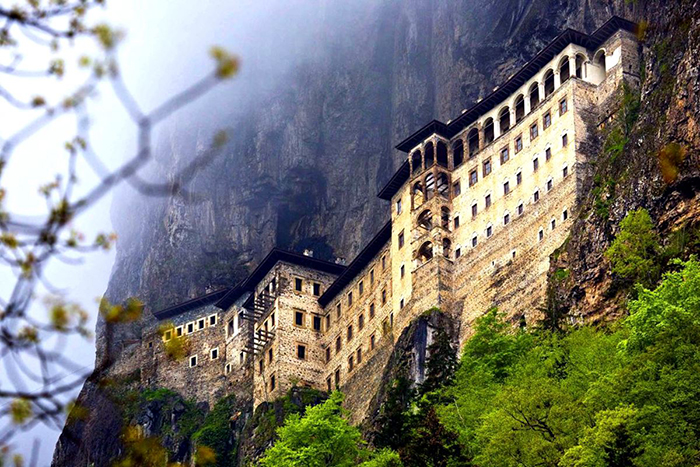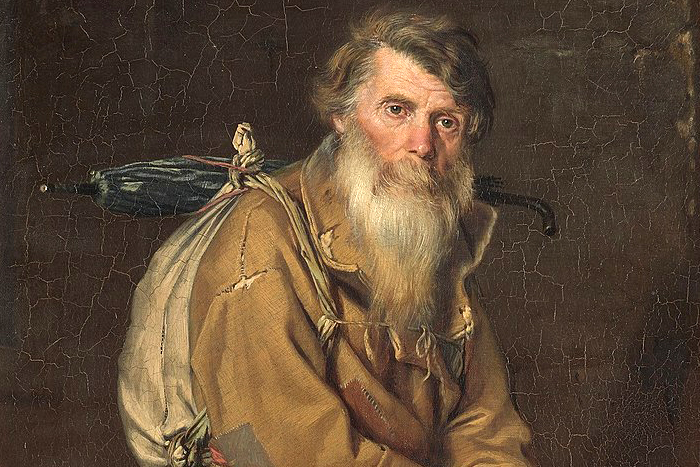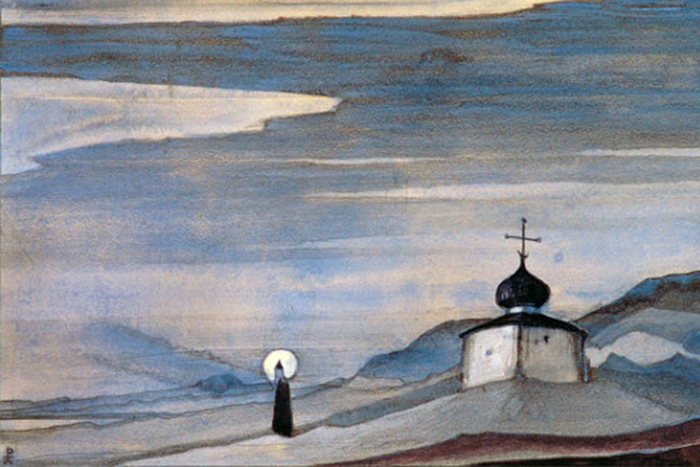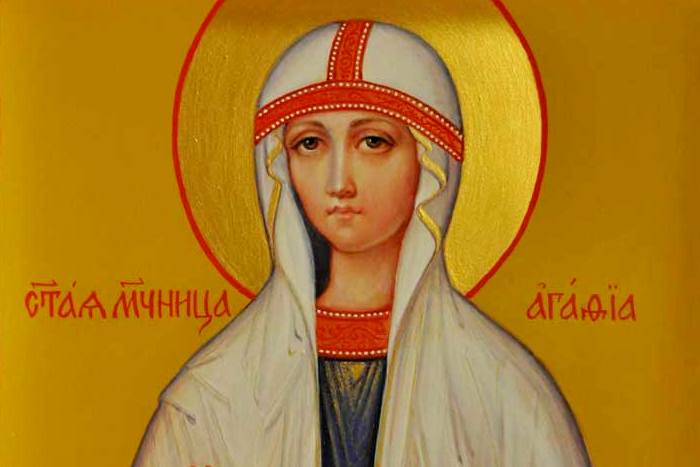
“Come on!!! Everything everywhere is so bad!” I hear lots of my friends screaming. I have noticed that if in that case you say that you trust God and are confident that He knows perfectly well what to do with His world, then you immediately drop out of the conversation…
The same happened to Ephrem, a monk from Athos (the future Elder Ephrem of Arizona), who was a disciple of St. Joseph the Hesychast at that time. It is known that originally Joseph and his disciples lived in a cell in a rather dangerous mountainous region. One day, a priest stopped by. Horrified of the threat of an avalanche that might occur, he asked Ephrem:
“How can you live in a place like this?”
“Everything is fine,” the monk answered.
“But these rocks can fall off the cliffs and crush your house!”
“Why would they?” Ephrem wondered, “if we love Christ here!”
The priest left, considering the monk’s answer insane, and Ephrem, who eventually became an elder, later remarked that the spiritual perception of the world is beyond comprehension to a carnal or even a rational person…
These are two divergent approaches. People think that panic or some kind of action saves them in times of crisis. The Elder Ephrem tried to assure that priest that only the way of active kindness is the way to salvation and that without it one cannot escape the troubles reserved for us.
There is an ancient Arab legend about it, dating back to the times of the Caliphate and the Crusaders.
One day a servant rushed to the Caliph of Baghdad and cried out in terror:
“Your Majesty, please, let me go to Samarkand.”
“What happened?” The caliph was worried.
“Death is walking in the palace garden,” the servant answered. “Right now I saw her there, and she threatened me with a finger. I’m very scared, and I want to run away…”
The caliph let the servant go, and he left immediately. The ruler went out to his garden and indeed saw Death there.
“Why did you scare my servant?” He asked.
“I didn’t scare him,” Death answered. “I just wondered why he was here, because tomorrow morning I have to meet him in Samarkand…”
This is a very simple thing, which is clear not only to the holy fathers: anyone who does good gets a reward. All sensible people of the earth know it: not only Christians, but also, for example, those children who have never been told about God.
You have to be committed to the path of goodness to understand these things. People who think they are smart will make fun of these words, but that’s just the way smart people are… When respectable adults hear about the graceful view of life and the earth, they brush it off as “children’s fairy tales”. That is why they do not get fairy tales, because they follow the path of self-affirmation and self-reliance, unable to hear how God, who inspires and blesses the fairy tale, promises a happy end to all good people through it. This is the great truth about how our world works in general.
Do not look for proof of my words in the experience of intellectuals and egoists – there isn’t any. Ask those who have done good things about happiness. Hasn’t God already shown that He can come to the rescue, especially to those who dare to be chivalrous in life?
Polish literary critic Jan Parandowski cites the story of Monk Gerardo, brother of the great poet Francesco Petrarca, which happened during the great plague epidemic in Europe in 1348:
“The abbot of the monastery where Gerardo lived, until then an active and energetic man, when faced with disaster, lost his head and advised all the monks to flee the monastery. Where? Where was that promised land, where was that Ararat? He wouldn’t listen to anything. However, Brother Gerardo refused to obey the abbot. “If you die here in desolation, you will not even have a grave!” the abbot shouted. Brother Gerardo replied that he never cared about his grave. The abbot left, and some monks went with him. However, the plague did not spare them: the abbot died first, in the land that seemed safe to him.
Thirty people remained at the monastery with Brother Gerardo. The plague arrived there too and took people one by one. Brother Gerardo took care of the sick and buried the dead himself. He was the only one who survived. When the monastery was attacked by bandits, he managed to successfully repel the attacks. The monastery bell always tolled at the proper time, letting the neighboring villages know that Gerardo’s courageous heart was not slumbering. When the plague finally receded, he began thinking about inviting new monks to settle in the monastery. Brother Gerardo led new monks along with the new abbot into the walls of the monastery, which survived only thanks to him. They looked with surprise at the man who came out of this heroic struggle cheerful, merry, and in good health.”
Anyone who is even a little familiar with medicine knows the danger posed by the plague. The more so for someone who cares for the sick and buries the dead.
Of course, there’s no such thing as blind luck in the world. God simply expects us to make a noble decision, a courageous act against our interests every time.
Not only angels, but even plague bacteria will honor such a hero as a man who brings God’s glory into this world. Such heroes will be rewarded in the fairy tale of our life, because they, these heroes, were able to rely on the Heaven and saw that the train of our world is driven by no one other than the merciful God!
Translated by The Catalogue of Good Deeds
Based on: https://pravlife.org/ru/content/ya-noyu-sledovatelno-sushchestvuyu



